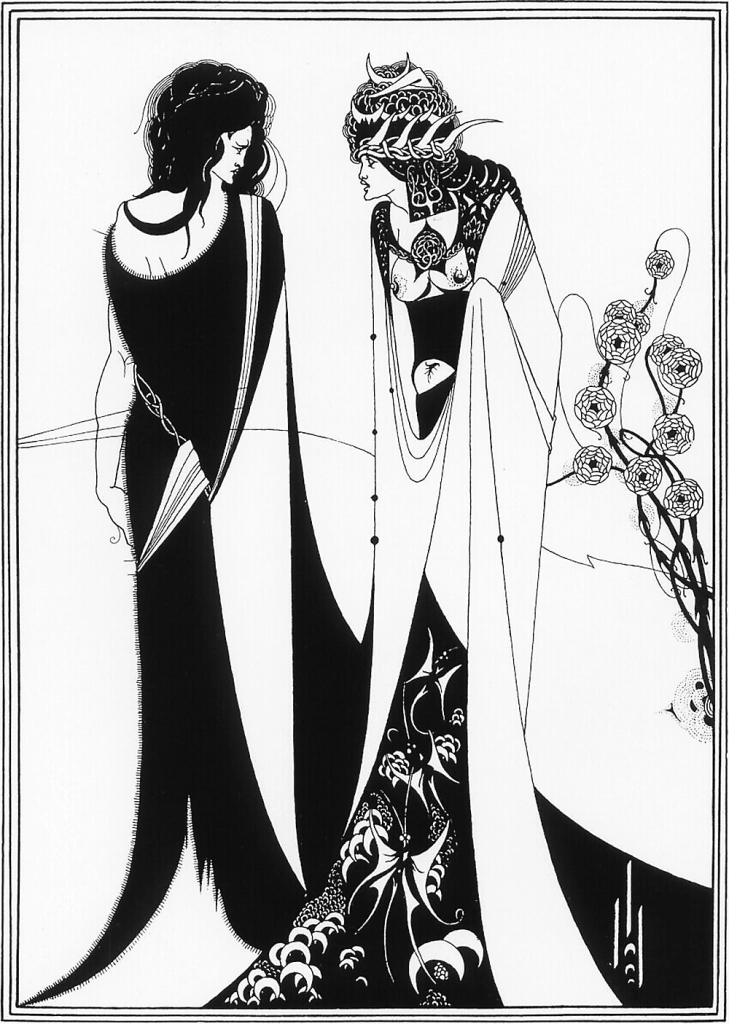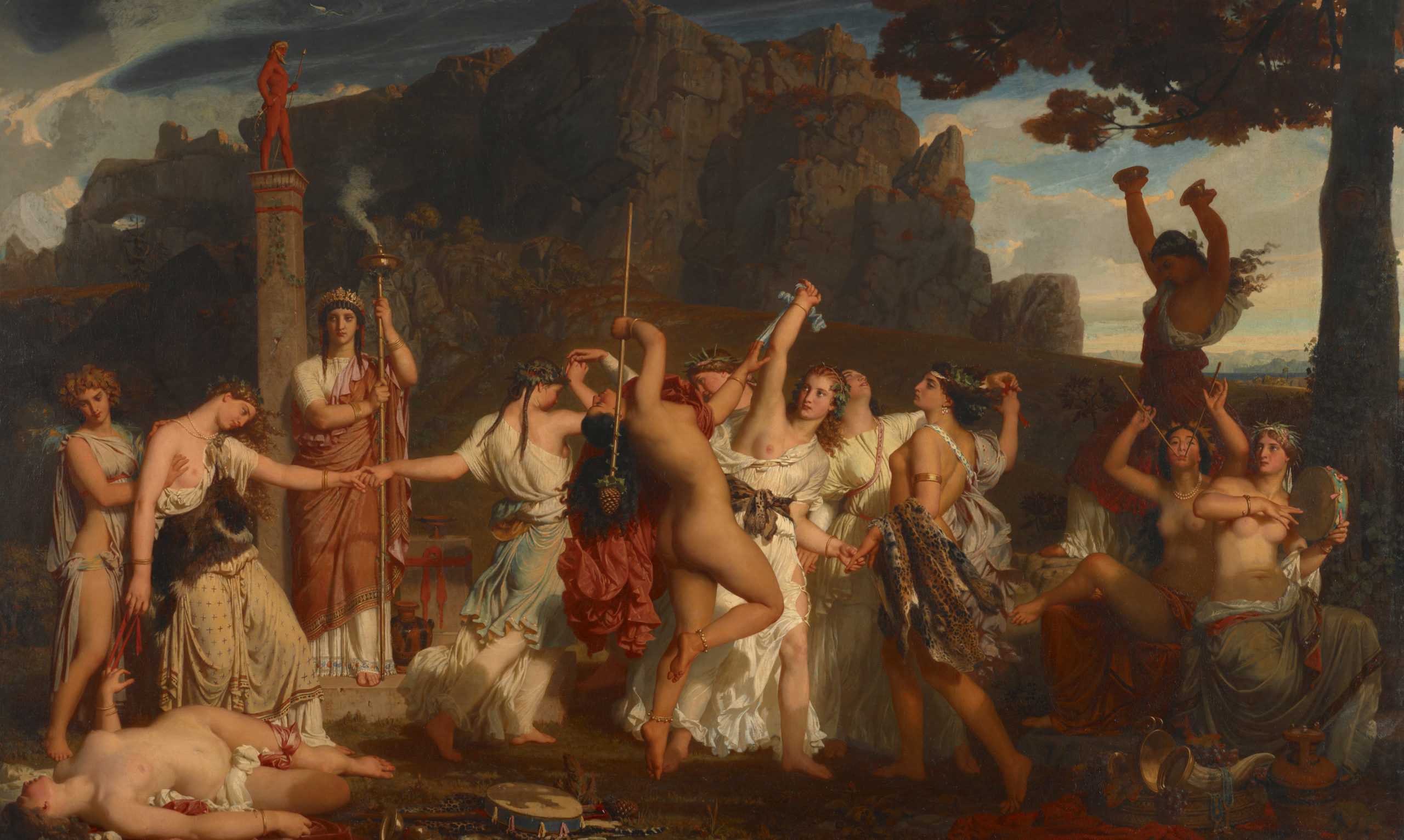At the heart of the mystery religions of Ancient Greece pulses the verb orgiazo (ὀργιάζω). Distinct from modern profanations, where the term “orgy” has lost almost all of its sacred weight, orgiazo belongs to the universe of ecstatic experience, a fire that consumes, purifies, and unveils. In the Dionysian and Orphic mysteries, orgiazo was not a synonym for dissolution, but for direct participation in the Divine. It was a rite lived in the body: dance, chant, ritual intoxication, possession, surrender to the boundaries of form. The word itself is born from orgia, secret nocturnal celebrations marked by the suspension of order, the veil torn between mortal and Divine.
These rites did not seek mere catharsis, but the reintegration of the being into the primordial unity. Ecstasy was a passage; the body, the instrument of mystery; rapture, the seal of communion with the force that animates all. Among the initiated women – bacchants, maenads – orgiazo was also a consecration of desire as a vehicle of revelation, making pleasure a bridge between the visible and the invisible.
Centuries later, Christian mystics would inherit something of this consecrated delirium, translating it into images of wound, fire, swoon, and rapture. And, in the French language, the echo endures: la petite mort – the little death, the instant when orgasm erases identity and recalls, for a brief flash, the abyss of the One.
I. The Fire of Ecstasy: when the body becomes altar
Orgiazo is never merely flesh, nor simple desire. At the center of the orgiastic fire lies the experience of being pierced by something greater, an excess that surpasses the ego and burns away the edges of selfhood. For the ancients, sexual ecstasy and mystical ecstasy were close kin, both producing the same dissolution: limbs tremble, reason falters, eyes roll back, the voice loses mastery. Here, there is no dominion over the body, but surrender to the blaze. The body becomes altar, and the offering is one’s own dissolution.
At the apex of orgiazo, the boundary between inside and outside falters. It is then that the mystic understands: rapture is a symbolic death, a passage in which something is extinguished to give way to the new.
II. Eroticism as the Language of the Sacred
Unlike modern readings that oppose the erotic to the sacred, the Hellenic universe and its heirs saw in desire the ferment of the Divine. Orgiazo was a rite because it made the body an open text for the deity, a stage upon which the invisible might become manifest. In the theatre of the bacchants, intoxication was not an escape, but a state fit for the influx of the other world. Every spasm, every moan, every liquid poured was seen as an act of creation, a seal of passage.
Even among Christian mystics, the ecstasy of the body became a figure of the soul’s rapture. The fire that rises along the spine, the tongue that babbles without sense, are echoes of the ancient orgiazo. Pleasure, when consecrated, is the language of the gods.

III. The Vertigo of the One: Rapture and Reintegration
Orgiazo is the memory of a lost unity. Every ecstasy, every little death, reenacts the nostalgia of the One. In the moment of climax, individuality falters, the name dissolves, time suspends itself. What remains is the abyss: a glimpse of what escapes reason, a contact with what is older than history. The alchemical tradition recognized in this instant the operation of solve et coagula; dissolve in order to reconstitute. The body surrenders, dissolves, so that the spark of the Divine may, for a moment, be remembered and absorbed.
In this rite, vulnerability is strength, openness is power. The brief death of orgasm is also the promise of rebirth, of returning to the world bearing traces of the Ineffable.
IV. Rituals of Offering: the Consecrated Fire in Modern Life
Today, in a time of disenchantment, orgiazo persists, but almost always veiled, misunderstood, mistaken for excess or vulgarity. Few recognize the ancient veil that rises, sometimes, in the heart of a shared ecstasy, in the solitude of orgasm, in the ritual intoxication of rare encounters. Yet those who know the secret, know: there are moments when the body becomes altar and pleasure becomes offering. Sweat, cry, and tremor are remnants of an ancient memory, archetypes asking for passage. The French petite mort echoes this knowledg, as sacrament of forgetting and reintegration. Pleasure, at its height, is an interlude of eternity: an interval in which the veil lifts and, for a second, the human touches the Sacred.
Corpus tremit, spiritus transit,
in igne revelatur Unum.
הַגּוּף רוֹעֵד, הָרוּחַ עוֹבֶרֶת
בָּאֵשׁ נִגְלֶה הָאֶחָד
